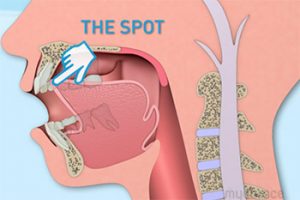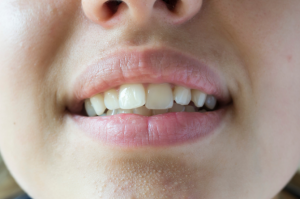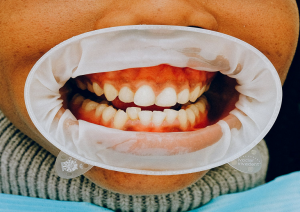Snoring can be mistaken as the sound of peaceful sleep. In reality, snoring is a sign of various health issues, including oral health. To find out how snoring can erode the quality of your pearly whites and what you can do to stop it, keep on reading…
Snoring is so common that we might see it as perfectly natural. But experts have found that snoring is linked to many health-threatening conditions such as unhealthy weight gain, high alcohol use, sleep deprivation, heart disease, stress and mental health. The most surprising finding would be that snoring has negative effects on your dental health too.
 What causes snoring?
What causes snoring?
Before we dive into how snoring can be detrimental to your oral health, we must understand the common causes of snoring.
The tissues in the roof of the mouth, tongue, and throat are in a relaxed state while you sleep. The soft tissues can sometimes relax so much that they partially block your airway, especially if you sleep on your back. As air passes through your throat, the soft tissues begin to vibrate, resulting in the sounds of snores. The more your airway narrows, the stronger the airflow and the louder the snores get.
How does snoring negatively affect one’s oral health?
When you snore, you are gasping for air through an open mouth, which leads to a dry mouth. When your mouth is dry, there is no protective layer of saliva to protect your oral tissues.
A dry mouth is more prone to pH imbalances, cavities, gum diseases and bad breath. In the absence of saliva, acids and bacterial plaque quickly accumulate in the mouth. The accumulation of harmful bacteria eventually leads to the deeper layers of the tooth being affected, resulting in severe dental pain.
Here are 5 things you can do to overcome this problem
1) Work towards a healthier weight
2) Use nasal strips or external nasal dilators
Nasal strips or an exterior nasal dilator may be used to overcome the issue of snoring. Many people find that applying adhesive strips to the bridge of the nose helps them to widen their nasal passage, thereby improving airflow. A nasal dilator is a stiffened adhesive strip that is applied externally across the nostrils to help increase airflow and allows you to breathe easily.
3) Learn myofunctional exercises and breathing techniques
The tongue, like any other muscle in the body, can be exercised to increase its muscle tone. By strengthening certain muscles of the tongue, you can adopt a better resting tongue posture. This prevents the tongue from losing its muscle tone and obstructing the airway during sleep.
Learning to breathe better during the day with breathing exercises will help to reduce the amount of air you take in during each breath and reduces your breathing rate. Both measures will reduce the occurrence of snoring during sleep.
4) Limit the consumption of alcohol and sedatives
Alcohol and sedatives should be consumed in moderation or they should be completely off the table for you. It is also best to avoid consuming alcoholic beverages at least two hours before going to bed. If you must take sedatives for health-related reasons, do notify your doctor that you snore in your sleep so that he or she may find an alternative for you. Sedatives and alcohol keep your central nervous system compressed, which triggers muscles, including those in your throat to relax, which as mentioned earlier, is a big contributor to snoring.
5) Frequent visits to the dentist
People who suffer from snoring must ensure regular dental checkups. Learn more about correction of snoring from a dentist who is trained in Myofunctional Therapy. With regular dental care from your dentist, any cavities or gum disease found can be effectively treated because of early intervention.
To get quality sleep, put these five tips into action to ensure that your smile will remain bright for all the days to come! As always, if you are due for a dental checkup, book an appointment with us!
Have an interesting topic you would like us to cover? Just let us know!
References:
1. Brushing your teeth: Does timing matter? (2019, June 05). Retrieved March 31, 2021, from
https://www.mayoclinic.org/healthy-lifestyle/adult-health/expert-answers/brushing-your-teeth/faq-20058193#:~:text=Answer%20From%20Thomas%20J.,your%20teeth%20and%20contains%20bacteria.
2. Melinda. (n.d.). How to stop snoring. Retrieved March 31, 2021, from
https://www.helpguide.org/articles/sleep/snoring-tips-to-help-you-and-your-partner-sleep-better.htm
3. What causes snoring: Its effect on oral health. (n.d.). Retrieved March 31, 2021, from
https://www.colgate.com/en-us/oral-health/respiratory-conditions/what-causes-snoring-its-effect-on-oral-health


 What causes snoring?
What causes snoring?







